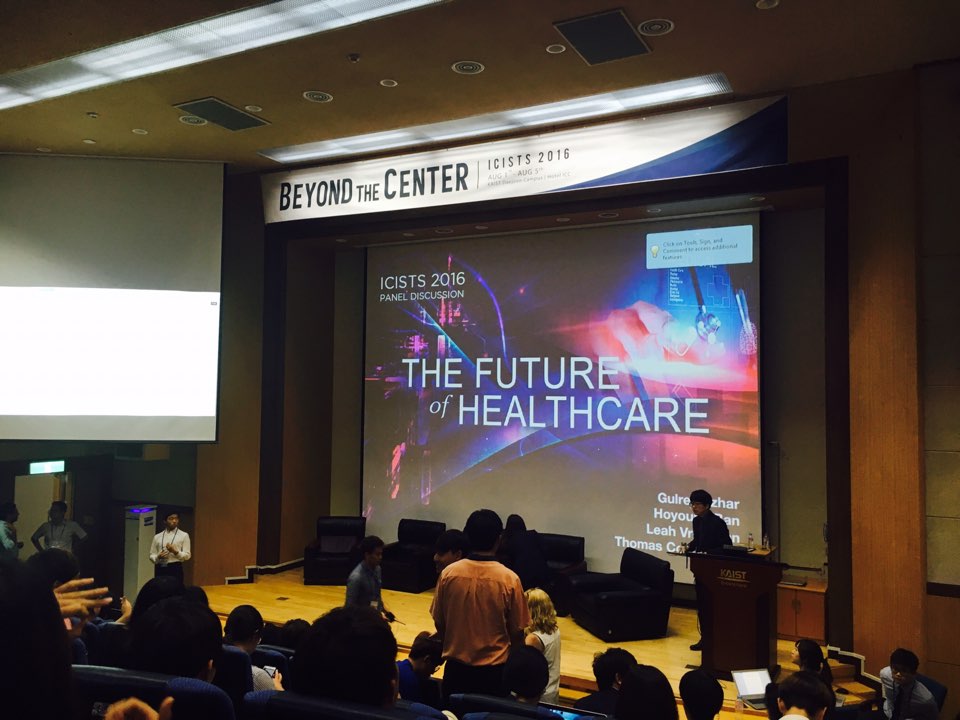
This year’s ICISTS-KAIST, titled “Beyond the Center,” confronted the pending issues in the breakdown and changes in traditional “central” organizations. Two fields that ICISTS introduced as subtopics and the causes of the disturbance were fintech and healthcare services. As a closer look at the centralized structures and the bias stemmed from social components, global treaty was set as the third subtopic. The angle in which ICISTS looked at these materials was intriguing as well. Each with the leading titles “unbundling of services”, “creation of needs” and “disparity of technology” respectively, the essence of the link between the technology and their effects in the real world was clearly captured.
ICISTS-KAIST prepared for the talks and the team projects respect to its three subtopics. Among the whole August 1 to 5, the actual conference schedule started on August 2. For three days, the participants were given the talks and keynote speeches about the assigned three subtopics each day. Nevertheless, the true driving force behind the conference was the team project. Teams of six got to choose between four topics. That included fintech, healthcare, civic tech and O2O. The team project made the conference feel like fast-paced researching and developing on the go, and a little like a hackathon even. The talks were undeniably of top tiers as they gave insight into both the global-scale trends and the actual state of the field in Korea.
The ultimate goal ICISTS-KAIST aims for every year lies in its motto, “Meet People, Get Inspired”, and that was the way the 5-day conference was planned out. To split ICISTS schedules into “meeting people” and “getting inspired” categories, ice breaking, culture night, beer party, gala night and team project would go to the first section, and open talk, cross talk, keynotes, panel discussion and discussion session to the second. However, just as how much valuable the talks are, the “meeting people” part also matters just as much heavily. Some might see ICISTS as an event where you just hear the talks, do the poster and finish, but it is absolutely inaccurate.
What made the event different from just being a bigger-scale seminar were the interdisciplinary topics and the diverse minds that came from all over the globe. As a Postechian at ICISTS-KAIST, you would have met people from diverse majors, and would have had a chance to work on a project with them as well. As a Korean, you could have had discussions and talk to people ranging from HIT students to professor who works in the financial services. ICISTS-KAIST will be an unforgettable event for both the people who aim to further their knowledge and the people who want to exchange minds with people from diverse backgrounds.
ى €ى‘권ىگ © يڈ¬ي•ê³µëŒ€ى‹ 문 무단ى „ى¬ ë°ڈ ى¬ë°°يڈ¬ 금ى§€


